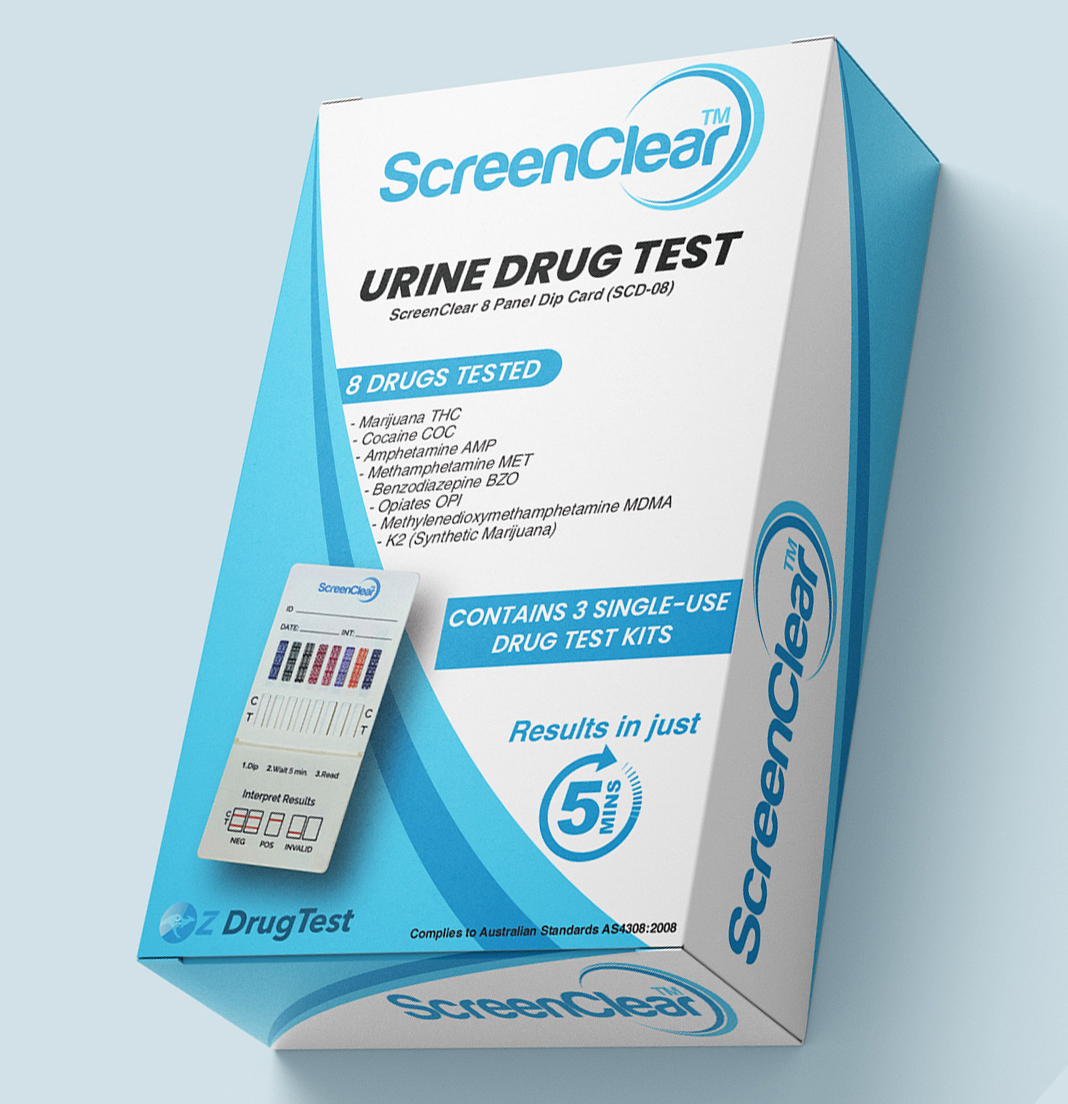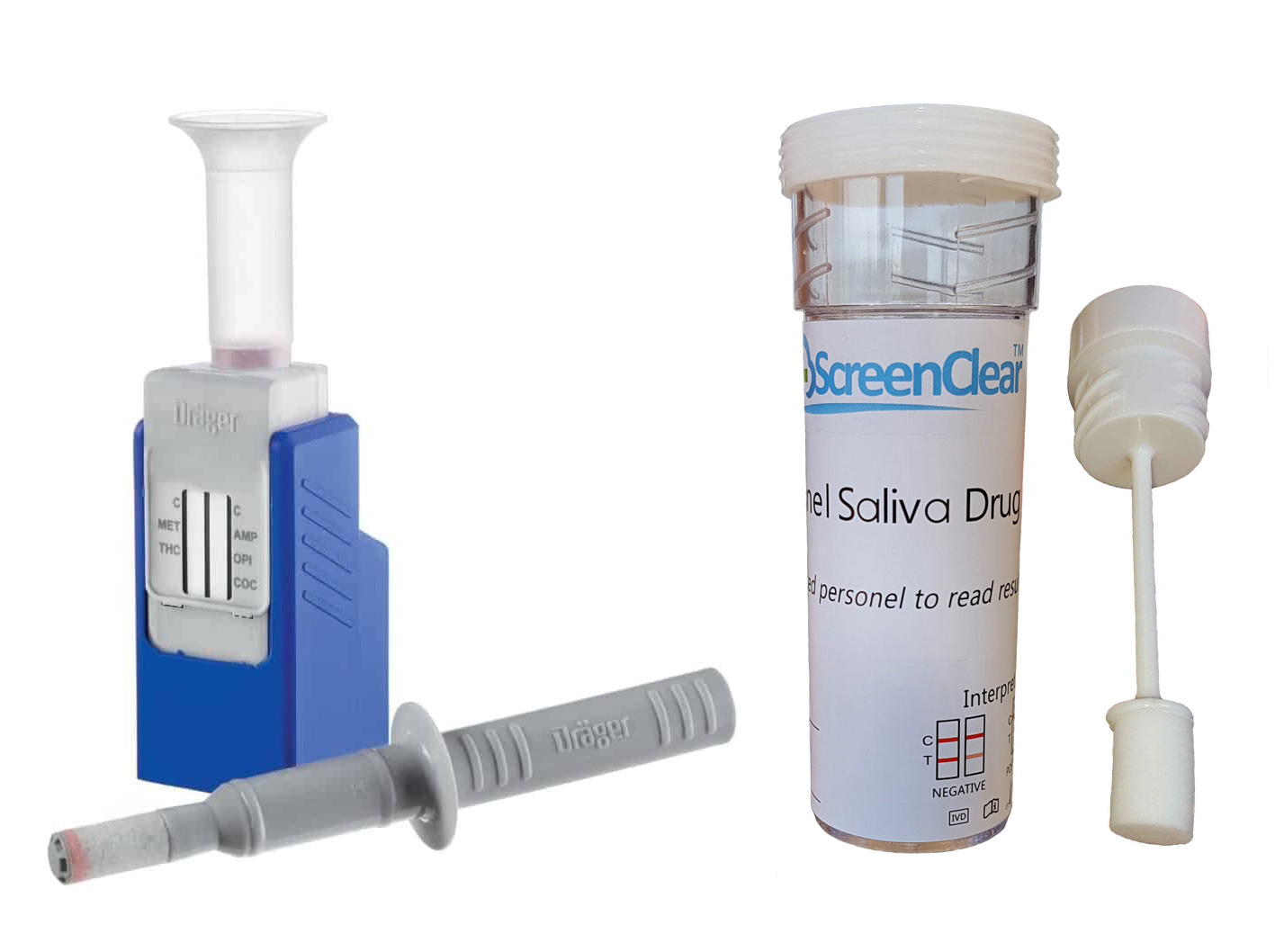
Urine vs Saliva Drug Testing
When it comes to workplace drug testing in Australia, employers have a choice: the long-established reliability of urine testing or the modern flexibility of saliva swabs. Both have their place, and both have their pitfalls. Urine testing is renowned for its wide detection window and scientific rigour, while saliva testing offers convenience and rapid insights into very recent drug use, but is slightly more vulnerable to collection and contamination issues.
This begs the question: Is saliva or urine better for drug testing? In safety-critical industries, this isn’t a decision to make lightly. With legal and operational implications at stake, understanding how each method works—and when one might be preferable over the other—can help you manage risk and meet WHS obligations. In this guide, we’ll explore the main differences to help you confidently select the right method for your workplace needs.
Urine Drug Testing: The Established Standard
Urine drug testing has been the backbone of workplace drug screening in Australia for decades. It is highly standardised, governed by AS/NZS 4308:2008, which outlines procedures for sample collection, analysis, and result interpretation. This method is particularly valued for its long-standing scientific validation and its ability to detect a wide range of drug classes.
Advantages of Urine Testing
Urine testing is widely regarded for its proven accuracy and reliability. The underlying testing methods have been refined over decades, with certified kits meeting stringent requirements under the Australian Standard. This extensive validation reduces the risk of false positives or negatives.
Another benefit is cost-effectiveness. High-volume manufacturing has made urine drug test kits affordable, especially for larger organisations conducting regular screening. Many tests can be performed on-site, with rapid results available within minutes.
Urine test kits are compact, stable at room temperature, and have a long shelf life (typically 2–3 years), which simplifies storage and logistics. However, the method’s primary strength lies in its extended detection window. Most drugs can be detected from 1 to over 30 days, depending on the substance and frequency of use. This makes urine testing especially useful for identifying chronic or habitual use patterns.
Disadvantages of Urine Testing
Despite its strengths, urine testing presents several challenges. It requires a restroom facility, making it logistically difficult for testing at remote worksites, during recruitment drives, or at mobile events. This can increase setup costs and complicate scheduling.
Urine collection is also considered invasive by many individuals, which may contribute to discomfort, privacy concerns, or a sense of stigma. This perception can affect employee morale or participation if not handled sensitively.
From a technical standpoint, interference from external substances—such as certain foods, over-the-counter medications, or even supplements—can influence screening outcomes. While confirmed positives should be verified via laboratory analysis, initial false positives or negatives remain a possibility.
Finally, urine testing is less effective at detecting very recent drug use. Because it relies on metabolites that appear in urine after a delay, use within the last 24 hours may not register.
Saliva Testing: Convenience and Recent Use Detection
Saliva (oral fluid) drug testing has grown in popularity across Australia, particularly as technology has improved. It is guided by AS/NZS 4760:2019, which outlines the procedures and quality standards for oral fluid collection and analysis. Premium, certified saliva kits have made this method a reliable and accessible option for many employers—especially where speed, convenience, and non-invasive testing are priorities.
Advantages of Saliva Testing
One of the biggest advantages of saliva testing is convenience. No restroom is needed, so testing can be conducted anywhere, anytime. This flexibility makes it ideal for workplaces without dedicated facilities, or for mobile testing units.
Saliva collection is also non-invasive, using a simple mouth swab. This method generally leads to greater employee comfort. The process is quick and easy, requiring less coordination and oversight, which is particularly beneficial for random testing programs or post-incident scenarios.
Like urine testing, results are available within minutes. However, saliva testing excels in detecting very recent drug use, typically within minutes to several hours after ingestion. This makes it especially relevant for identifying potential impairment close to the time of testing, such as in for-cause or post-incident testing where assessing immediate risk is important.
Disadvantages of Saliva Testing
The short detection window is the most notable limitation. Most substances are detectable in oral fluid for only 1–24 hours, making it difficult to identify past or chronic use patterns. As a result, saliva testing is less suitable for broader risk management programs aimed at long-term behavioural trends.
Sample contamination risks are also higher. Eating, drinking, smoking, or using oral hygiene products (like mouthwash with alcohol) shortly before the test can distort results. This often necessitates a 30-minute abstinence period prior to collection, which can be hard to enforce.
Collecting an adequate volume of saliva can also be difficult, especially if the person is dehydrated or anxious. Moreover, drug concentrations in saliva are generally lower than in urine, making detection technically more challenging. Cannabinoids, in particular, are harder to detect in saliva, especially in low-dose or occasional users.
Lastly, the scientific validation and laboratory support for saliva testing is not as extensive as that for urine. While quality kits are reliable, the overall sensitivity may vary between products.
Understanding How Instant Drug Screens Work
Most instant urine and saliva drug tests use immunoassay technology, which relies on competitive binding. In simple terms, if the sample contains the drug, it competes with a drug-labelled marker for antibody binding sites, preventing a test line from forming.
Each test includes a Control (C) line, which confirms the test has functioned correctly. The Test (T) line indicates the result:
- Two lines (C and T) = Negative result.
- One line (C only) = Non-negative (Presumptive Positive) – further lab confirmation required.
Implementing Drug Testing in the Workplace
In Australia, workplace drug testing is commonly used for:
- Pre-employment screening,
- Random testing (as a deterrent),
- Post-incident testing (after an accident or safety breach),
- For-cause testing (where drug impairment is suspected).
Employers have a legal duty under WHS legislation to ensure a safe working environment. Drug testing is a proactive tool to meet these responsibilities and reduce the risks associated with impaired performance.
However, effective implementation depends on a clear and legally sound drug and alcohol policy. This should outline the types of testing, procedures, employee rights and obligations, and how consent is obtained and recorded. Proper training and documentation are required to uphold fairness and compliance.
Key Considerations When Choosing Urine vs. Saliva
Comparing Key Factors
If you’re wondering, is saliva or urine drug test more accurate? There’s no clear answer. Instead, employers should consider several factors when selecting between urine and saliva testing:
- Detection Window: Urine = long-term use; Saliva = recent use.
- Accuracy/Validation: Urine has more extensive historical validation.
- Logistics: Saliva offers better mobility and ease of collection.
- Cost: Urine tests may be cheaper per unit; saliva tests save time.
- Employee Experience: Saliva is less invasive and more accepted.
Detecting Presence vs. Impairment
Neither a saliva or urine drug test measures impairment. These tests detect the presence of drugs or their metabolites above set thresholds, not how affected someone is at the time.
Results should be interpreted within the scope of the workplace policy. A non-negative result doesn’t automatically mean a worker was impaired. It signals a need for further investigation or lab confirmation.
For legal and operational integrity, organisations should seek advice from legal counsel and occupational health experts when establishing or updating their drug testing protocols.
Aligning Testing with Workplace Needs
Both urine and saliva testing are valuable tools in workplace drug screening. Each has unique strengths, whether it’s urine testing’s long detection window or saliva testing’s rapid, non-invasive application. Choosing the right method depends on aligning test characteristics with your company’s safety strategy, operational realities, and policy goals while always remembering that presence of drugs ≠ proof of impairment.




